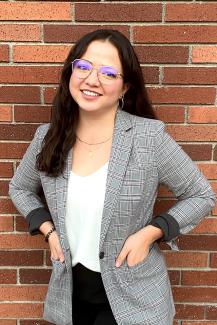
Counseling, Clinical & School Psychology
Research Interests
At UCSB, Natalie's research focused on community-based work with adolescents in school and community settings. Clinically, she has worked in schools, the university-based clinic with families, and an inpatient psychiatry and addiction medicine unit with adults. Natalie's current research interests are focused on improving mental health and substance use prevention efforts for low-income, Spanish-speaking, and marginalized communities. Her goal is to use her research skills and return to Arizona and build a research program that focuses on border health and education.
Mentoring Experiences
I have had various opportunities to mentor undergraduate students. For example, with my dissertation project, I have hired and paid two undergraduate students, from minoritized backgrounds, in order to facilitate opportunities for research and contribute to more equitable paths to post-baccalaureate higher education. As a teaching assistant and associate, I wrote several letters of recommendation and have met with students to talk about graduate school. Something that has become increasingly clear to me in my time here is that academic pathways need to be more equitable and as an aspiring faculty member. The most rewarding experiences of mentoring undergraduate students is when students share that they see themselves in my various minoritized identities (e.g., Latina, first-generation, low-income background) and I am able to affirm their belonging in large academic institutions. The most challenging piece is having to manage structural barriers that limit some minoritized student's (e.g., undocumented students) ability to be financially compensated for their work.
Meaning of the Award
Winning this award means has meant that I am able to continue building my career towards being the mentor that is able to continue advocating for better systems to support the career development of minoritized students in research and graduate school. It also means that I am able to honor all my mentors that have contributed to my trajectory. My mentors range from family members who have had limited education but taught me core components of mentorship (e.g., encouragement, warmth, care, and steady companionship towards goals) to academic mentors who have shared academic logistics (e.g., writing grants, research skills) that was instrumental in supporting my graduate career. I am truly grateful to have received this recognition and will continue to build a skillset that equitably serves the students I mentor in the future.